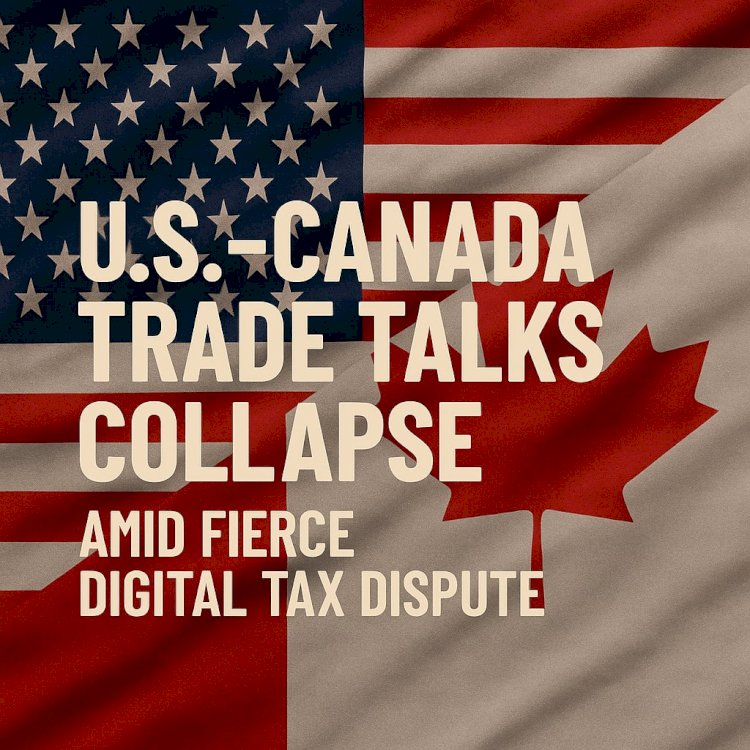U.S.-Canada Trade Talks Collapse Amid Fierce Digital Tax Dispute

Date: June 28, 2025
Trade negotiations between the United States and Canada have come to an abrupt halt as tensions escalate over Canada’s newly imposed Digital Services Tax (DST). The dispute centers on a 3% tax on revenues of major digital companies, predominantly targeting U.S.-based tech giants.
Digital Tax Sparks Diplomatic Fallout
Canada’s DST, effective retroactively from January 2022, requires large digital firms like Google, Amazon, and Meta to pay taxes on Canadian user revenues. This move has provoked strong backlash from the U.S., which views the tax as unfair and discriminatory against American businesses.
President Donald Trump announced on June 27 that the U.S. is suspending all trade talks with Canada, branding the DST a “direct and blatant attack” on American companies. He also cited long-standing trade issues with Canada, including dairy tariffs, as additional reasons for halting negotiations.
Canada Defends Its Position
Canadian leaders have stood firm in the face of U.S. criticism. Prime Minister Mark Carney stressed that the DST ensures foreign digital companies contribute their fair share to the Canadian economy. Finance Minister François-Philippe Champagne reiterated that the tax was passed democratically and will move forward as planned.
Despite the breakdown in talks, Canadian officials emphasized the importance of maintaining open channels with the U.S., given the extensive economic ties between the two countries. The U.S. remains Canada’s largest trading partner, and vice versa.
Tech Industry Backs U.S. Response
U.S. technology firms largely support the Trump administration’s hard stance, arguing the DST unfairly targets American companies and could inspire similar taxes globally. In response to the tax, some companies have started imposing additional charges on Canadian advertisers to offset the new costs, a move that may affect Canadian businesses relying heavily on digital marketing.
Trade Fallout and What Lies Ahead
The failure to resolve differences over the DST complicates efforts to update the United States-Mexico-Canada Agreement (USMCA) and threatens to trigger retaliatory tariffs. Experts warn that escalating trade tensions could disrupt cross-border commerce and dampen economic growth on both sides.
Both nations now face the challenge of balancing their domestic economic policies with the necessity of preserving a vital trade relationship.

 content-team
content-team 


















